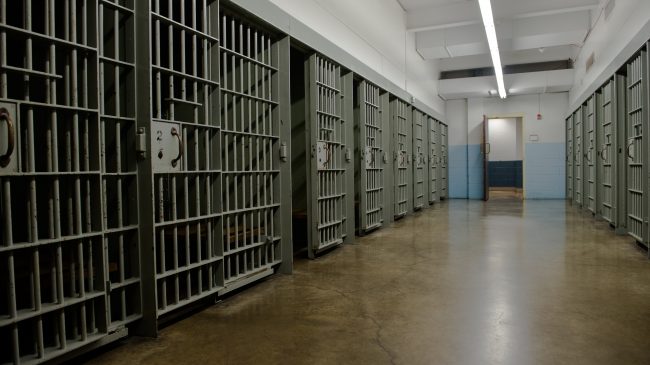Building on a policy pursued by the Obama administration, the Biden administration is moving to ban the use of private prisons at the federal level.
President Joe Biden is directing the Justice Department to not renew contracts with private prisons, as part of a slew of executive orders focused on racial equity he is signing Tuesday. The Biden administration will not enter new contracts with private prisons, according to a senior administration official. The Biden administration has not yet released the text of the order.
In 2016, a federal Bureau of Prisons Inspector General (BOP OIG) report was offered by Department of Justice (DOJ) officials as justification for the ban on private prisons. However, the plans were disrupted by the results of the 2016 presidential election and the Trump administration’s decision not to follow through on the ban.
With the Biden administration, DOJ, and a willing Congress, there’s little doubt that such a ban on private prisons could now be implemented. But phasing out the federal use of private prisons makes little sense. Instead of stopping the federal use of private prisons, the Biden administration should embrace the push for criminal justice reforms that focus on rehabilitation and re-entry programs and use the flexibility private prison companies offer to quickly implement those reforms.
As I noted back in 2017, the BOP OIG report’s intended purpose was to improve the contracting practices and the monitoring of prisons managed by private operators. The report was not intended in any way to justify a ban or even curtailment of the use of private prisons in the Bureau of Prisons. In fact, the BOP actually warned against using the report to make the very types of comparisons between public and private prisons used by then-Assistant Attorney General Sally Yates made in her memo justifying the previous attempt at the private prison ban in the BOP.
Another BOP OIG report released earlier in 2016 provides reason to doubt that sound policy and procedures are followed in government-run BOP prisons, at least with respect to searching staff for contraband. While the OIG had already recommended staff search policy changes in government-operated BOP prisons for over a decade, BOP staff showed little willingness to embrace change or even follow established procedures in searching staff to the point that OIG admits, “(I)n light of the BOP’s infrequent application of random pat search events and other related issues described in this report, the absence of contraband recoveries may not constitute an accurate performance measure.”
If BOP staff in public prisons cannot be relied upon to search themselves, what good is done by simply scapegoating private prisons? The OIG noted, in the very report used by private prison critics to justify a ban, that private prisons have shown a willingness to improve upon or eliminate problems as they are discovered. If that’s the case, the oversight of private prisons can be more effectively managed.
Few deny the myriad problems that exist in corrections systems in the United States. After decades of making prison sentences longer and incarceration harsher, a growing consensus is rightfully moving toward returning prison facilities to a more rehabilitative approach that recognizes most inmates will eventually be released and ideally, the prison system will help prepare inmates for productive lives that help them avoid returning to prison.
Given the vast void between current practices in US prisons and the ideal situation, innovation will be needed to help solve the numerous problems.
Banning private prisons would ensure all federal corrections remain in the BOP, which would be putting the hopes for criminal justice and prison reforms on the bureau to develop and implement innovative solutions. It’s currently failing to implement basic oversight and improvements, so expecting solutions to suddenly emerge across BOP by eliminating the use of private prisons is more than wishful thinking, it is an outright denial of how innovative and competitive forces work.
Contracting for performance remains very much a learning process in corrections, but still offers the opportunity to hold providers more accountable to implementing meaningful criminal justice reforms. Significantly improving prison operations will require the participation of the private sector, but successful contracting also takes a Bureau of Prisons and departments of correction committed and able to hold both public and private providers accountable. The federal government should admit to the problems that all prisons, including federally-run facilities, face, while holding both types of prisons to similar accountability standards.
Good contracting practices, whether through public-private partnerships, service contracts, or even in public-sector collective bargaining agreements, can be used to test and identify successful reforms that can then be widely implemented.
Unfortunately, the Biden administration’s ban on private prisons could slow down some of the very criminal justice reforms that would help move the country away from its failed mass incarceration policies.

